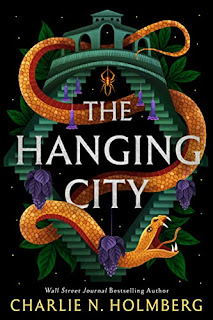The founding of Marrakesh as the background of one of the best love stories I have ever read - the Moroccan empire series by Melissa Addey
The Almoravid dynasty (Arabic: المرابطون, Al-Murābiṭūn) was an imperial Berber Muslim dynasty centered in Morocco.It established an empire in the 11th century that stretched over the western Maghreb and Al-Andalus. Founded by Abdallah ibn Yasin, the Almoravid capital was Marrakesh, a city the ruling house founded in 1062. The dynasty originated among the Lamtuna and the Gudala, nomadic Berber tribes of the Sahara, traversing the territory between the Draa, the Niger, and the Senegal rivers.
Yusuf ibn Tashfin, also Tashafin, Teshufin, (Arabic: يوسف بن تاشفين ناصر الدين بن تالاكاكين الصنهاجي, romanized: Yūsuf ibn Tāshfīn Naṣr al-Dīn ibn Tālākakīn al-Ṣanhājī; reigned c. 1061 – 1106) was leader of the Berber Almoravid empire. He co-founded the city of Marrakesh and led the Muslim forces in the Battle of Sagrajas. Ibn Tashfin came to al-Andalus from Africa to help the Muslims fight against Alfonso VI, eventually achieving victory and promoting an Islamic system in the region. He was married to Zaynab an-Nafzawiyyah, whom he reportedly trusted politically. (Source: Wikiperdia)
Some of you might be familiar with the Christian hero El Cid. He and Yusuf ibn Tashfin were each other's opponents.
In this series Melissa first creates a fictional first wife for Yusuf ibn Tashfin (after a part 1 novella that is all about incest and guilt and what I think you can skip) and more or less tells the story of Yusuf, Zaynab and the founding of Marrakesh. This will very well do as a historical tale about that. See my review of that novel here: http://www.dutchysbookreviewsandfreebooks.com/2019/04/review-of-string-of-silver-beads.html
The next novel tells the lifestory of queen Zaynab and although that is an interesting psychological sad story of a woman who craved love her whole life and ended up with empty hands all the time I would keep that story for last as it will create spoilers for part 4 and I think you best read book 2 and then 4 and maybe 1 and 3 for the background.
Book 4 however I found brilliant as it is a story that is all about love. Or like the heroine says at the end: "God send me on a pilgrimage of love".
Sister Juliana was a miracle baby and her parents promised her to the church. At the end of the 10th century and about 30 years old she is her convent's renowned herbalist and next in line to become the mother superior when she is send on a journey to accompany a new novice to the convent. Reading between the lines Sister Juliana gives the impression of being quite a formidable and arrogant woman who frowns when her fellow sister and traveller smiles and greets people on the road. Even when disaster strikes still she looks down upon other people and condemns sinners, Muslims and Jews to hell. For her her chastity as a nun is paramount.
This condescending woman ends up as a scarred and crippled kitchen slave in the middle of the Sahara.
---- BE WARNED SPOILERS AHEAD ----
What I found extremely well done is how Isabella tries not to forsake her religious beliefs but over decades first respects but later deeply loves one man of what in her religion will be regarded an unbeliever. You can feel that love from afar grow. From watching from the citywalls how he trains his soldiers and thinking he is doing so well, to wanting his baby badly and yearning for him when he is kneeling in front of her and sobbing in her lap.
It is not at all a steamy romance. For instance "intimacy" is shown when they uncover each other's veiled head and caress each other's face and hair (male Almoravids veiled themselves as Toearegs and she is a nun who covers her hair unlike the Berber women). Nevertheless it becomes quite clear that both share a deep love and respect for each other. What is shown by marriages symbols as a house and by dates.
How she changes from looking down on Muslims and Jews to having Muslim and Jewish sisters, being well acquainted with dark skinned Africans and raising a Muslim. How in fact she recreates her convent. And realises what real love for people is. So as an old woman she is thinking what her God will think of her doing all she has done and concludes that God sent her on a pilgrimage of love.
It is a very moving book. And you can understand why Isabella does what she does and the man she loves is a quiet caring person who respects her religion and can have a good laugh too.
Melissa Addey found a plausible reason for a real historical oddity in the Almoravid history.
5 stars out of 5







Comments
Post a Comment